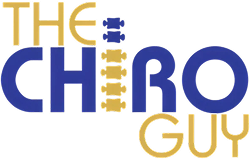Thank G for Dr. Ash! My pain level is night and day since seeing him. Before my first session, I couldn’t even turn my neck. I can’t recommend him highly enough—he truly cares about getting results and making sure you feel better. The multiple therapies they offer are super comforting too. His whole team is so kind and caring, which makes a huge difference. Anyone going to Dr Ash is in amazing hands. I’m beyond grateful!

As a Surgeon of over a decade, my back finally began to remind me that it’s not invincible. As the discomfort increased, everything I tried was very limited if not temporary relief. With a few sessions with Dr. Ash I can tell a significant difference. I’ve noticed that my movements have improved, my discomfort relieved, and I’m back to being a spring chicken thank you Dr. Ash and team for helping a colleague, community family, and friends all feel better one joint at a time.

Dr. Ash is incredibly professional, knowledgeable, caring and genuinely interested in his patients. I’ve been receiving chiropractic care for over 40 years and he provides one of the most thorough adjustments I’ve ever had. His office is clean and modern and his equipment is all state of the art. His staff (Diana) is always friendly, professional and accommodating. Thank you Dr. Ash and Diana!

I've had a great experience with this chiropractic office. The staff is very professional, friendly, and welcoming from the moment you walk in. The office itself is clean, modern, with a relaxing vibe. The treatment they provided really helped me and noticed big improvements right away. Highly recommended!

